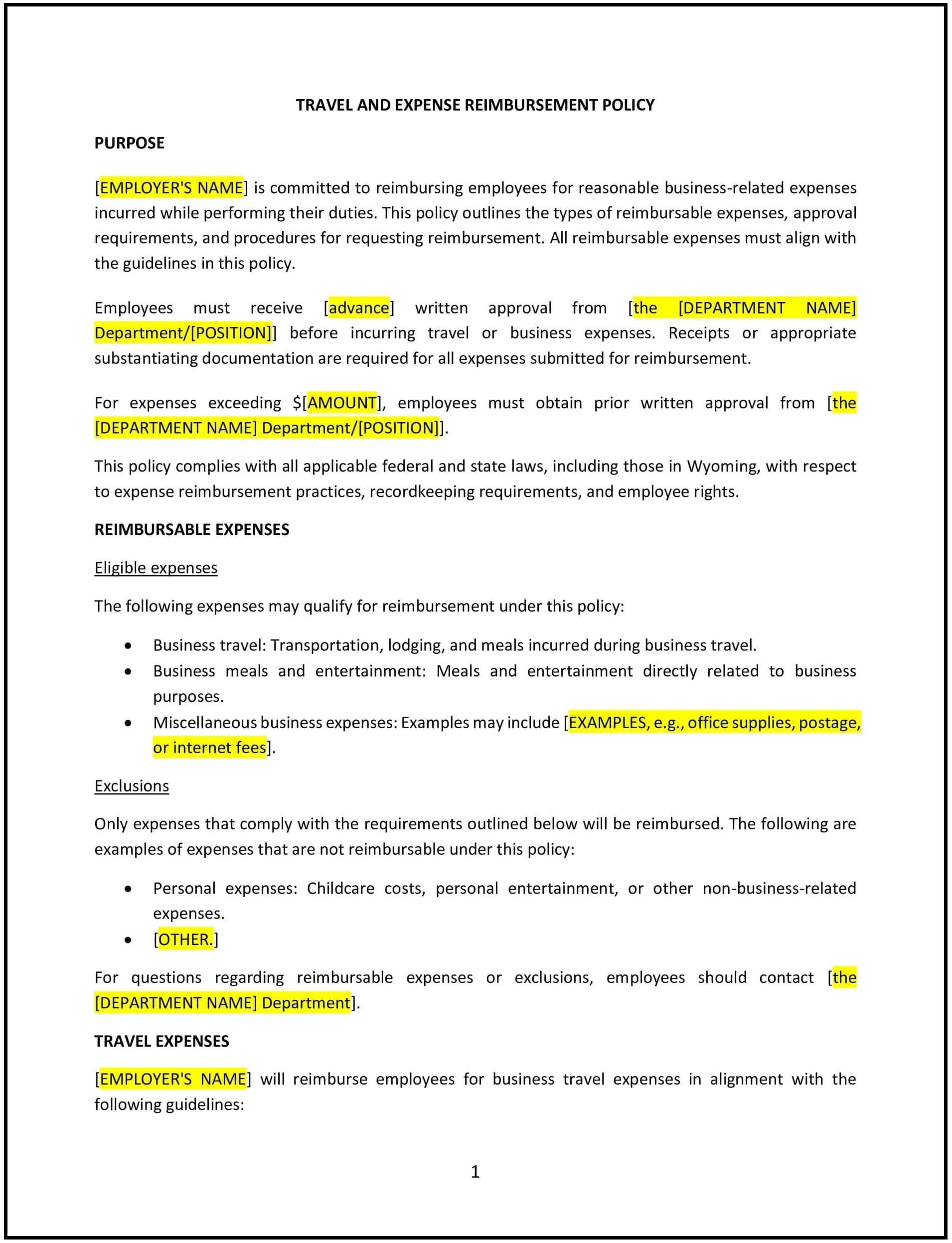Travel and expense reimbursement policy (Wyoming): Free template
Got contracts to review? While you're here for policies, let Cobrief make contract review effortless—start your free review now.

Customize this template for free
Travel and expense reimbursement policy (Wyoming)
In Wyoming, a travel and expense reimbursement policy provides employees with clear guidelines for claiming reimbursement for business-related travel and expenses. This policy ensures consistency, transparency, and enhances compliance with state and federal regulations.
This policy outlines the types of expenses eligible for reimbursement, the process for submitting claims, and the approval criteria, fostering accountability and efficiency.
How to use this travel and expense reimbursement policy (Wyoming)
- Define eligible expenses: Clearly specify reimbursable expenses, such as transportation, lodging, meals, and business-related incidentals.
- Set reimbursement limits: Include guidelines for expense limits, such as per diem rates for meals or maximum allowable lodging costs.
- Outline submission procedures: Provide steps for submitting reimbursement claims, including required documentation like receipts and expense reports.
- Establish approval processes: Detail how expense claims will be reviewed and approved, ensuring consistency and fairness.
- Support compliance: Align the policy with Wyoming labor laws and federal tax regulations to ensure legal adherence and accurate recordkeeping.
Benefits of using a travel and expense reimbursement policy (Wyoming)
A travel and expense reimbursement policy provides several advantages for Wyoming businesses:
- Promotes accountability: Ensures that employees understand what expenses are reimbursable and adhere to company guidelines.
- Supports compliance: Aligns with tax regulations and legal requirements, minimizing the risk of disputes or audits.
- Enhances transparency: Provides clear procedures for submitting and approving expense claims, reducing misunderstandings.
- Improves efficiency: Streamlines the reimbursement process, saving time for both employees and management.
- Adapts to local needs: Reflects Wyoming’s unique travel and business landscape, including rural or remote areas.
Tips for using a travel and expense reimbursement policy (Wyoming)
- Communicate clearly: Share the policy with employees during onboarding and ensure it is accessible for future reference.
- Leverage technology: Use expense management software to simplify claim submissions and approvals.
- Monitor compliance: Regularly review submitted expenses to ensure adherence to the policy.
- Provide training: Educate employees on proper documentation and the importance of accurate expense reporting.
- Review periodically: Update the policy to reflect changes in travel costs, regulations, or organizational priorities.